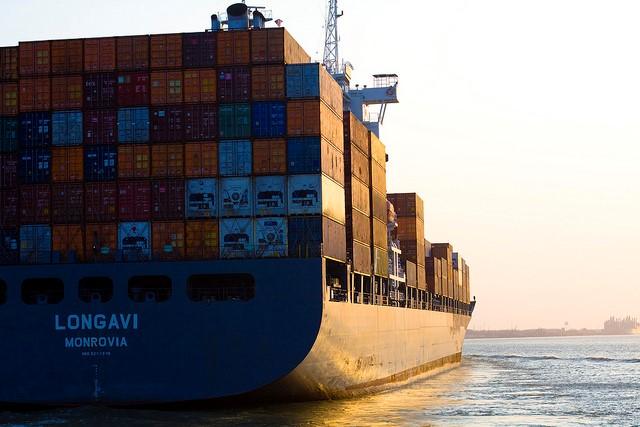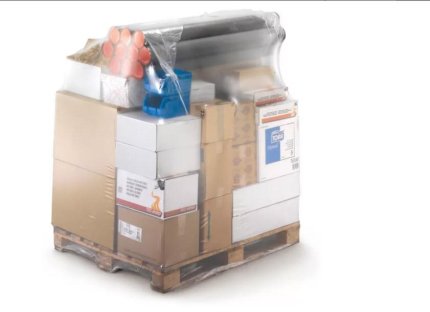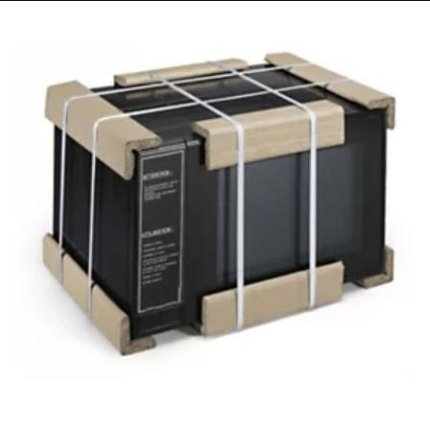When shipping your large and heavy goods abroad, it’s vital that you package them in a way that keeps them in good condition and also gives guidance to those receiving them in the other country.
Large and heavy goods require appropriate packaging to prevent them from becoming damaged, or from damaging other items in the shipment.
For a shipment to be cost and time efficient, you need to ensure that your packaging is fit for purpose, whilst also remembering all the legal requirements that have to be met.
That’s why we have put together this very handy list of top 10 tips and things to remember when packaging and shipping your large and heavy goods overseas.
- Palletise your goods to reduce the risk of damage
One of the best ways of saving space, ensuring that all your goods arrive at their destination without damage, is to strap them together on a pallet. Pallets are easily transported using a pallet jack and therefore save time and energy for both the carrier and those receiving the goods.
Remember that there is EU regulation in place that effects some pallets and pallet boxes. ISPM15 is the International Standards for Phytosanitary Measures NO.15, and was put in place to prevent destructive organisms from being transported from one country to another in treated wood work. You can use products such as our Wooden Pallet Boxes & Inka Pallets that comply with these export regulations.
- Extra strong strapping will prevent damage, theft and tampering of goods in your shipment
Extra strong strapping and custom packaging tape keeps your items together and prevents people from opening the packages in transit.
With products such as custom packaging tape, it also allows you to add extra branding and instructions to your products.
- Use void fill to protect surrounding items
It is vitally important that the appropriate void fill is used to ensure that products don’t move around and become damaged in their shipping box when they are being transported. This is especially true with large and heavy goods that could potentially damage stock around them.
Bubble wrap is good for protecting the item itself, but if you want to protect other items from large and heavy goods falling on them, void fill such as vermiculite is ideal.
- Clean your items thoroughly to avoid fines at customs
Certain items can become dangerous if they are not properly cleaned. For instance, if wood is not cleaned, it can begin to rot and become a home for parasites and organisms that can carry infections and diseases. If dangerous goods are not properly declared or packaged, they can be stopped from going through customs and fines can be issued to the exporter and carrier.
You should wash or wipe products thoroughly and inspect for elements such as damp that could lead to rot or product damage.
- Research what products are classed as Dangerous Goods
Goods that are considered to be potentially dangerous need to be packaged and labelled in a way that protects the item and those who have to handle it. If you send these goods on a regular basis, you may also be required to employ a DGSA (Dangerous Goods Safety Advisor).
Dangerous goods are separated into categories depending on the type of damage they can cause and the type of event that must occur for those products to become lethal.
Examples of dangerous products include:
Flammable liquids and gases, toxic waste, infectious substances, radioactive material.
For a full list of the categories of dangerous goods, head to the ‘shipping dangerous goods page on the .gov website.
- Check weight restrictions applied by the forwarder or carrier
Depending on the size of your goods, you may need to be aware of weight restrictions. These usually only come into effect with much bigger items (larger than pallet loads). However, even with smaller goods such as large parcels, there are increasing charges as size and weight grows.
It is important that you research the freight agent’s and forwarder’s charges as it can often work out cheaper to palletise your smaller items.
- Fill out an ESCI as accurately and with as much detail as possible
An ESCI (or Export Cargo Shipping Instruction) is an instruction document which is given by the exporter to the carrier. On this document will be notes about the route, the way an item should be handled, who should receive the goods and an allocation of costs.
Many insurers won’t pay out on goods that don’t have a correct and completed ESCI. These notes are especially important for shipments that require temperature control or include fragile goods.
- Don’t forget your Standard Shipping Note
Standard Shipping Notes are a necessity if you’re shipping goods abroad. They contain information about the goods and those carrying them and are used by the carriers and custom officials. Without these notes, your goods can be prevented from leaving or entering a country.
- Take out export insurance
Export insurance protects the exporter against the risk of not being paid under export contract, or not being able to fulfil that contract because of events that prevent the delivery of goods.
Given that the economy and politics of nations can change in the space of days, export insurance gives you peace of mind and could save you large amounts of money.
10. Avoid taxes by acquiring an ATA Carnet
If you’re moving goods into another country on a temporary basis, you may be eligible for an ATA Carnet. An ATA Carnet is a document which secures tax and duty free importation of goods into a country as long as they meet one of the following criteria:
- They are sample products
- They are being displayed at a trade show
- They are being used for construction.
Avoiding taxes on these imports can save your business money and time.
Picture credit to Bridget Colla and Jaxport





















Nice share. This post was so informative. A lot of good information here.
I can’t believe I forgot about void fill! I will have to look into getting bubble wrap like you said. I love that stuff, but now I actually need it!
Hi sorry I dont know if you can help me or not but I figured it was worth a shot! Basically to sum up – I’m a business owner who does lots of importing and exporting in goods. Basically I’ve been having some trouble with foreign currency exchange and getting the best deals but obviously its really important for the business that we’re getting the best deal possible. I’ve been reading lots around the subject online but I’d be lying if I said I’d got my head around it. What’s the best option for businesses when it comes to foreign exchange? I came across a business called Clear Treasury (this is them: https://www.cleartreasury.co.uk ) and they seem to deal with this type of thing. Am I best going with a company like this rather than doing everything independently? Is that the recommended course of action? I just want to make sure I’m getting the best deal – so any advice would be massively appreciated! Like I said I don’t know if anyone will be able to help me but thought I’d give it a try! Thanks everyone!
Hi, unfortunately we are unable to provide advice as we do not specialise in this area.
Thank you so much for mentioning that you want to thoroughly clean any items you want to ship over seas since some things can become a danger if they aren’t. My family is planning on sending some art pieces we own to our vacation house in Italy. So we will make sure to use skid wrappers so they don’t become damaged, but we will also make sure to clean the wood frames they come in thoroughly, to prevent rotting.
Great advice for finding the best deal when shipping overseas. Being able to work around taxes is incredibly helpful.